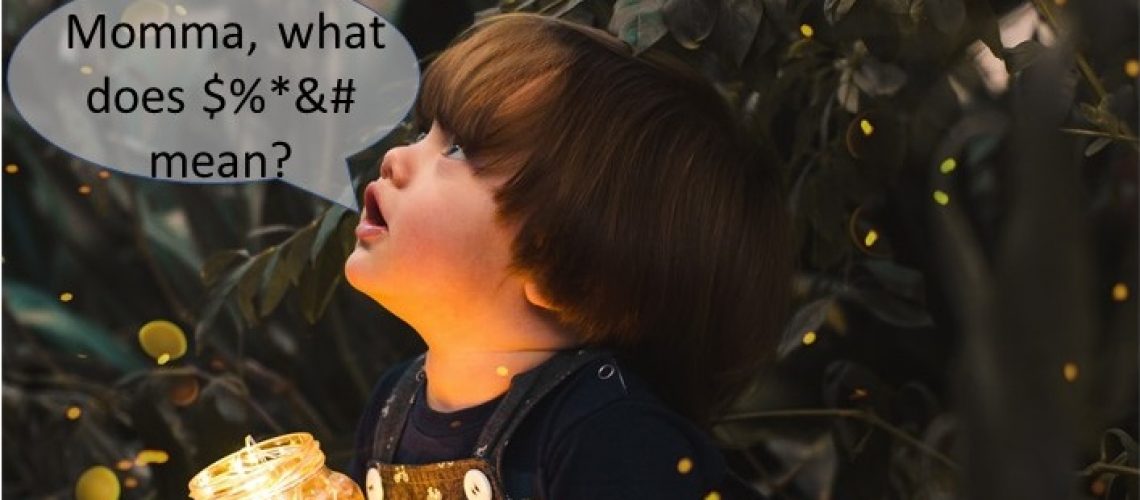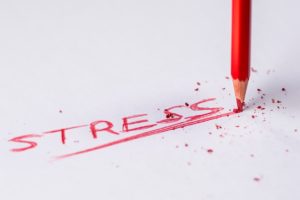Most of us teach our kids that swear words are taboo words that are never acceptable. Many times, we try to prevent young kids from hearing these words at all. But is this really the best way to go? According to science, maybe not.
When my daughter was 6, we were listening to the radio and the song “Shut up and dance” came on.
If you’d like a musical interlude, here’s the official music video of the song:
My daughter got a look on her face of pure unadulterated shock. “What’s the matter, I asked?”. She replied, “They keep saying the ‘s’ word!”. I sat listening to the song, waiting to hear what we classically think of as the ‘s’ word, but it never came.
Finally, I looked at her and asked “What IS the ‘s’ word?”. She rolled her eyes, unable to believe that this ridiculous adult somehow didn’t know what the ‘s’ word was. Then, she leaned over to me and whispered as quietly as was humanly possible, “Shut up”.
I busted out laughing when she said this, but then I got more thoughtful.
Why DO we consider some words swear words, while other words are ok?
By the time she was 5, my daughter’s swear vocabulary had matured a bit; she actually got suspended from her summer camp because she had parroted the word “bitch” without knowing what it meant. Just the utterance of the word was enough to get her booted for the day, and I had to run over there to pick her up. If she had instead called someone a female dog, with full intention of meaning it …probably nothing would have happened.
Swear words are generally used in situations of anger or pain, as a way of emphasizing the emotion that is felt in those situations. Is using these words really such a bad thing? And is it really any better to say things like “Oh cluck!” than the quite obvious alternatives?
Why have we decided that certain words and concepts are taboo?
Swear words make up 4-17% of our daily language use, and there are over 70 of them in the English language! These words tend to fall into three broad categories, regardless of what society you’re in:
- Words describing excrement
- Words related to sex or sexual body parts
- Words that are blasphemous.
In earlier societies, swear words were taken a lot more seriously. Back then, many believed that words had a particular power. If you expressed a desire for someone to go to Hell, it was believed that the person actually might. This stemmed from the beliefs about the power of God. If you blaspheme, you will be punished. So blasphemous words and phrases quickly became taboo quite early on, and it is easy to see why.
The other two categories are a bit more complicated. Rather than labeling words as taboo because they are simply dangerous, these words stem more from the fact that we have labeled the concepts of excretion and sex as “embarrassing”. Therefore, when you speak of them in a blunt way, this is considered taboo.
Emma Byrne addresses the history and usefulness of swearing in her very interesting book, Swearing is Good for You: The Amazing Science of Bad Language. I recommend it if you want to check it out at the link below:
Swearing Is Good for You: The Amazing Science of Bad Language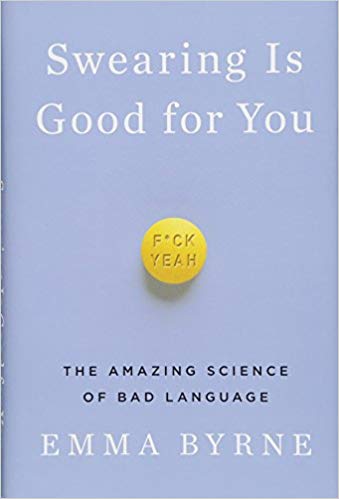
Note that as an Amazon associate, I may stand to profit if you make a purchase from Amazon links in this post.
In this book, Byrne highlights a chance discovery in the first female chimpanzee to learn American Sign Language, Washoe.
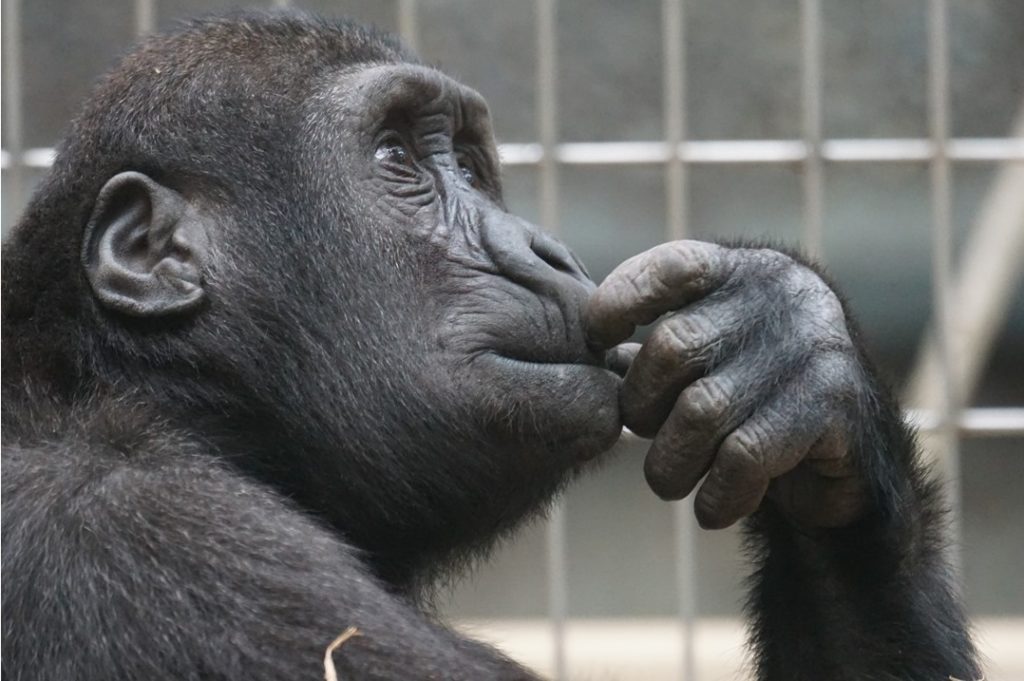
According to the story, Washoe was kept in a household, and had to be potty trained. She was taught, as our children are, that defecating anywhere other than the potty is “dirty”.
Washoe quickly began describing feces as “dirty” and even began using her sign for “dirty” in the same way that we use swear words describing excrement. When she was angry, she would make that sign.
According to anthropologist named C.R. Hallpike, this could indicate that our human ways of potty training our kids is actually instilling in them a sense of disgust about excretion, and about their private parts in general. Because sex involves some of those same parts, the embarrassment, the association with “dirty”, can extend to those as well.
But why are some words about excrement considered swear words while others are not?
In the movie Despicable Me, when the villain Vector realizes that the moon is about to grow back to it’s original size, he says “Oh poop!”. It comes over as funny. Imagine if he instead said “Oh shit!”. We’d all run and cover our kids’ ears! Why, exactly? When we talk to kids about defecation, we tend to teach them “polite” words that describe it. But why is “poop” polite while “shit” is not?
To become a swear word, a word must be considered coarse.
We tend to designate a word as a swear word if it sounds harsh. A vast majority of swear words in the English language are four letter words. This is likely because most four letter words are pronounced in one syllable.
English speakers tend to resort to one-syllable words when making statements that are particularly emotional. Swear words are most often used as an expression of strong emotion, usually anger.
If you think about it, calling someone a vagina just doesn’t give you the same feeling as calling someone the alternative, more punchy version of the word.
In other cultures, swears tend to be longer and more creative. Some particularly good ones include:
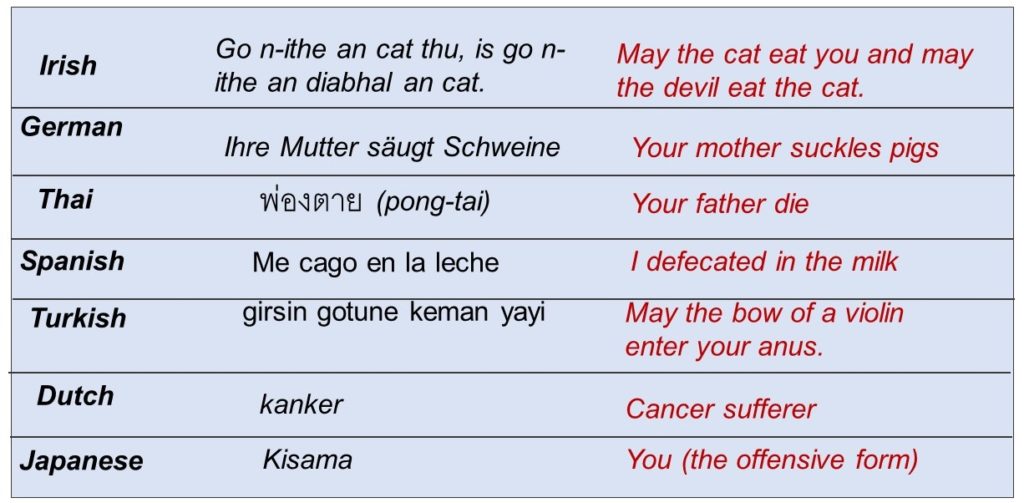
So, is the use of these words harmful? Well, actually…
The use of swear words may actually be beneficial!
There is a common misconception that those who swear are lazy, dishonest, and lack enough of a vocabulary to come up with other more polite words. But scientific studies show that those of us who swear more often actually have bigger vocabularies than those that don’t.
In addition, those who swear actually tend to be more honest. It makes sense if you think about it. People who swear are not holding back. They are not as afraid of offending, and so they are probably more likely to be their authentic selves.
Not only that, but swearing at the right times can actually be helpful:
- Swearing can increase pain tolerance: Participants held their hands submerged in ice water for as long as they could stand it. Those who were told to swear during this were able to endure the pain for longer, and had lower heart rates as well!
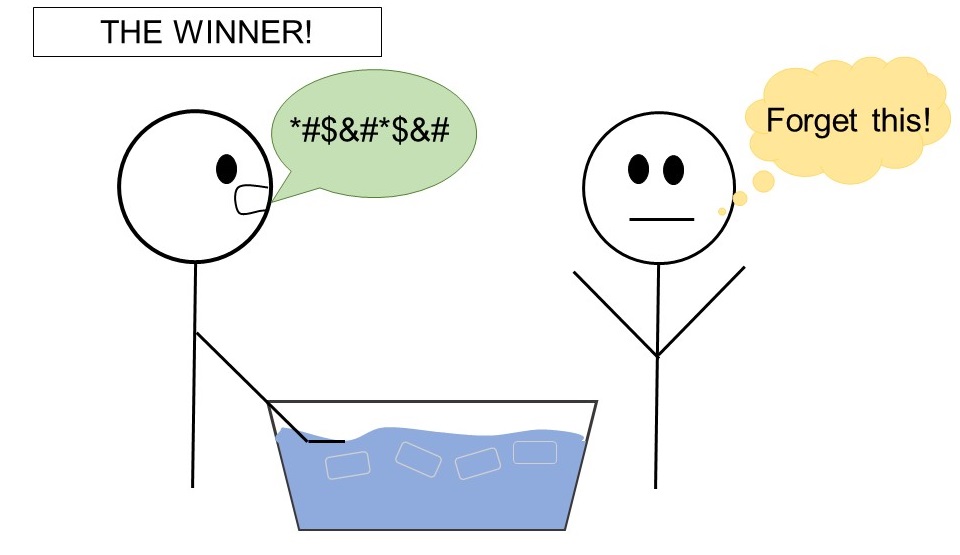
- Using profanities can stimulate feelings of intimacy and comeraderie. PewDiePie is a Youtube sensation who has over 54 million subscribers, and frequently includes profanity in his videos. A study showed that when he used more swear words, it actually stimulated more conversation and the illusion of intimacy among his viewers!
- Slipping a swear or two in there makes you appear more likeable. Researchers found that politicians who slipped some swear words into their speeches and blogs were considered less formal and more likeable by voters. Apparently, the ones who swear are the ones you’d like to go have a beer with.
So should we be teaching our kids to swear?
Well, quite frankly, we already are. Kids learn the most taboo words when they are 3-5 years old. Young ears are particularly sensitive to emotional situations that may accompany profane language. Even when we try to shield kids from the words, they encounter them on TV, out in the world, and at schools or daycares.
Once kids reach school age, they start comparing the words they know. The more restrictive we are about these words, the more tempting it is for them to explore them. This often leads them to use swear words in inappropriate contexts.
What if we introduced swear words as a part of vocabulary right from the start?
I’m not suggesting that kids should be spouting profanity left and right, but perhaps we should teach them the words and the contexts in which they should be used. This would demystify the words, and teach kids how the words affect people, and even when they may be beneficial.
Perhaps we could even teach our kids some more creative ways to express their anger. Shakespeare had some of the best!

If we stop making random words in our language a big deal, kids will too. Swearing is already becoming more commonplace in our kids’ lives. Perhaps we, as parents, should be the ones who direct how they learn these words.
